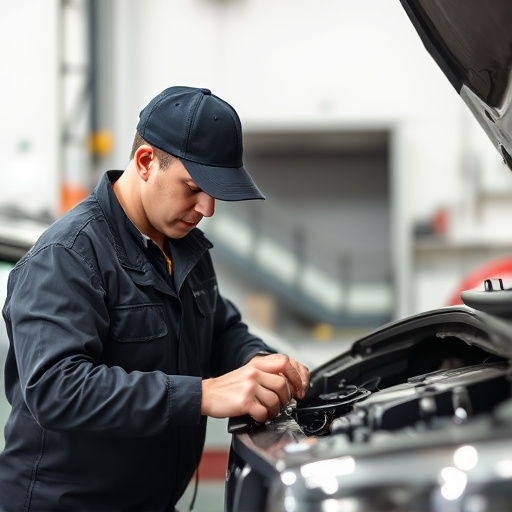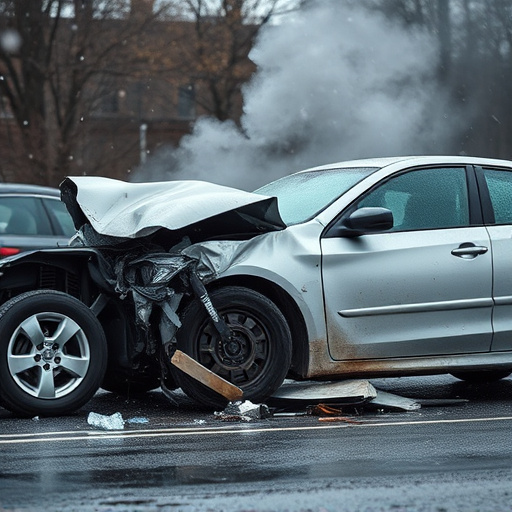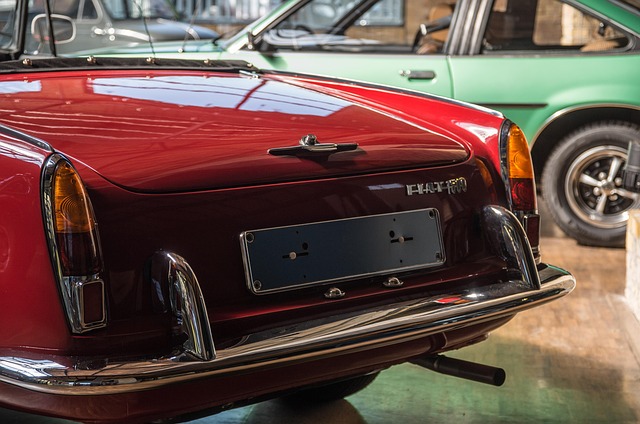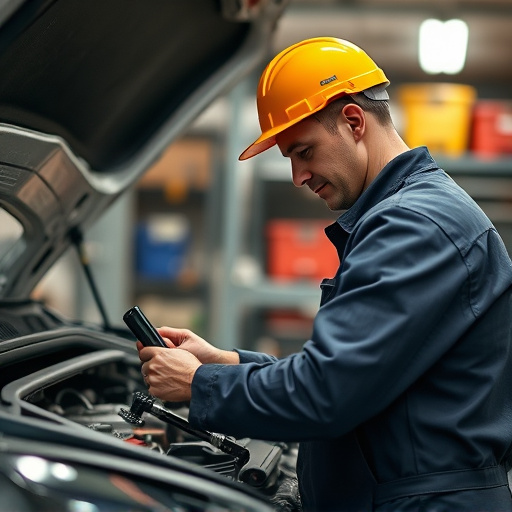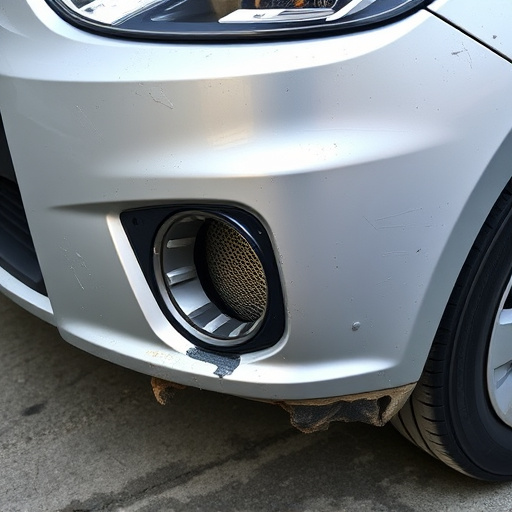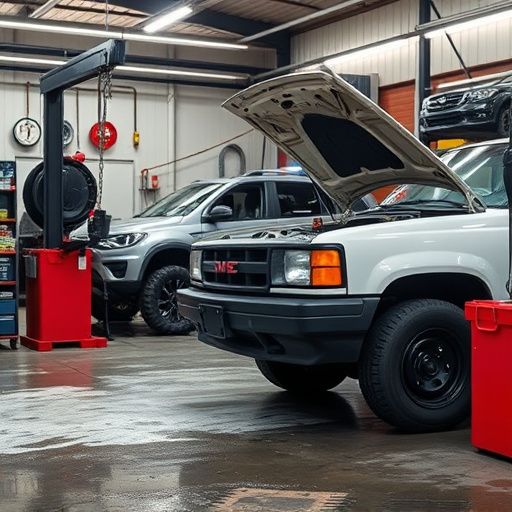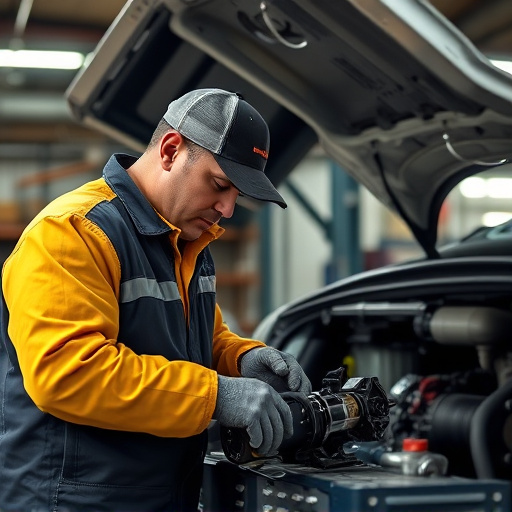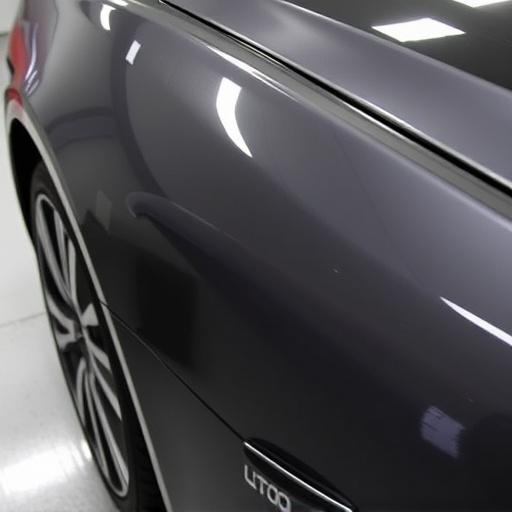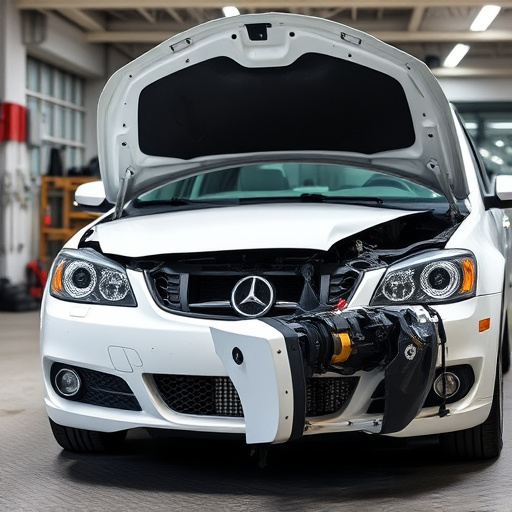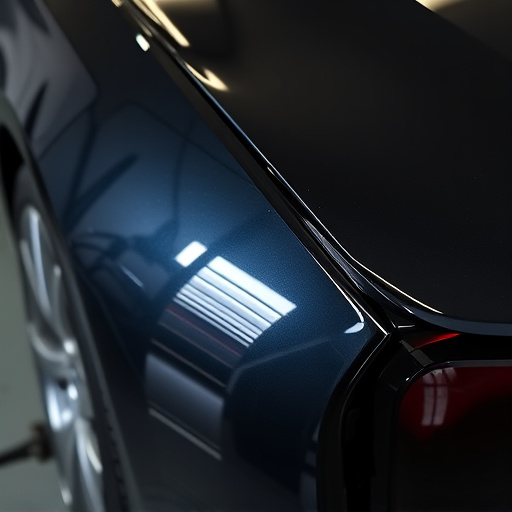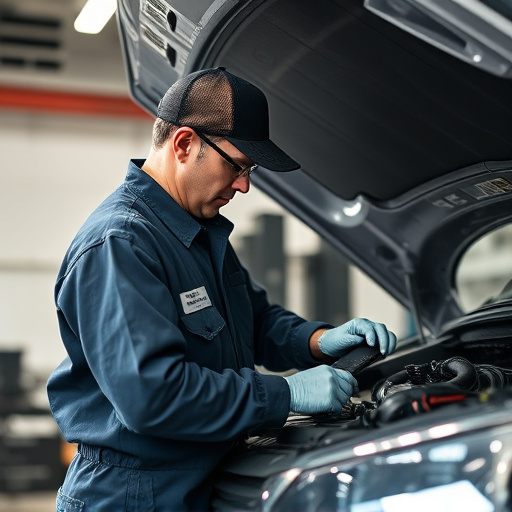Mercedes impact sensor calibration ensures modern vehicle safety systems function optimally. Uncalibrated sensors can lead to improper airbag deployment and other critical safety issues. Regular maintenance by skilled technicians guarantees accurate readings, enhancing vehicle safety and reliability in accidents, especially during paintless dent repair.
Mercedes impact sensor calibration is a critical process that ensures consistent and reliable performance from collision detection sensors. Inconsistent sensor readings can lead to false alarms, delayed responses, or even missed detections, impacting safety and repair costs. This article delves into the importance of calibration, explores common causes of sensor inconsistencies, and details the step-by-step process for calibrating impact sensors on Mercedes vehicles.
- Understanding Mercedes Impact Sensor Calibration Importance
- Uncovering Sensor Inconsistencies and Their Causes
- The Process of Calibrating Impact Sensors on Mercedes Vehicles
Understanding Mercedes Impact Sensor Calibration Importance
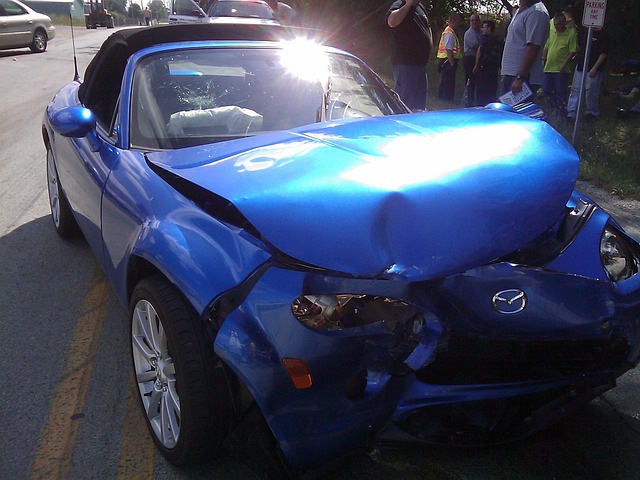
Mercedes impact sensors play a critical role in modern vehicle safety systems, including airbag deployment and collision detection. Calibrating these sensors is an essential task that ensures their consistent and reliable performance. Proper calibration means the sensors accurately detect the severity and type of impact, which directly impacts passenger safety during a fender bender or more severe collisions.
Uncalibrated or inconsistent sensor readings can lead to improper deployment of safety features, potentially causing harm to vehicle occupants. Regular maintenance, including Mercedes impact sensor calibration, is crucial for maintaining optimal system functionality. This process helps in achieving precise results, especially during paintless dent repair, ensuring that the vehicle’s safety mechanisms respond appropriately and effectively in the event of an accident.
Uncovering Sensor Inconsistencies and Their Causes
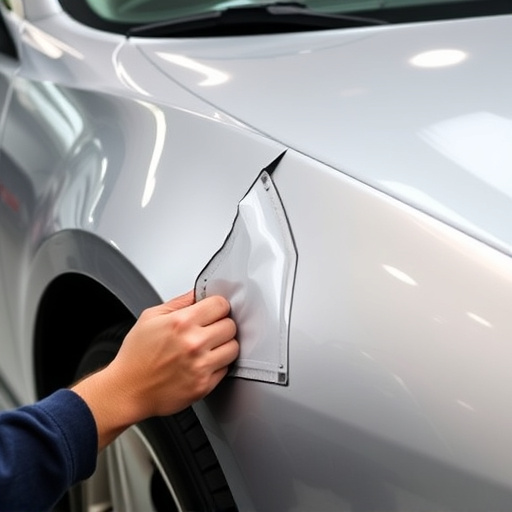
Uncovering Sensor Inconsistencies and Their Causes
In modern vehicles like Mercedes, impact sensors play a crucial role in safety systems. However, over time, these sensors can become inconsistent in their performance due to various factors. One of the primary culprits is lack of proper calibration, which can lead to inaccurate readings during collisions or sudden impacts. This inconsistency might go unnoticed until it’s too late, potentially compromising the effectiveness of airbag deployment and other safety mechanisms.
Regular auto body repairs and visits to a collision center or car body shop are essential for addressing these issues. Skilled technicians employ advanced tools to calibrate impact sensors, ensuring they function optimally. By maintaining accurate sensor performance, these professionals not only enhance vehicle safety but also contribute to the overall reliability of the vehicle in the event of an accident.
The Process of Calibrating Impact Sensors on Mercedes Vehicles
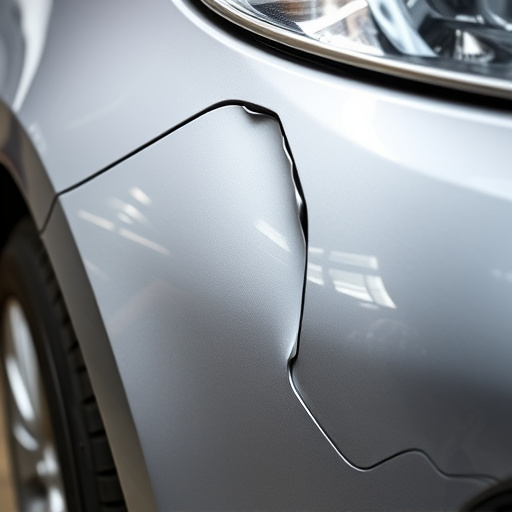
The process of calibrating impact sensors on Mercedes vehicles is a meticulous task that ensures optimal performance and accurate readings. It involves several steps designed to fine-tune the sensor’s sensitivity and response time. First, the car repair shop or auto body repair center needs to access the vehicle’s diagnostic system using specialized tools. This allows them to isolate and engage the specific impact sensor to be calibrated. Once accessed, a series of pre-set tests are conducted within the shop environment, simulating various impact scenarios without actually causing any damage. These tests help in adjusting the sensor’s threshold levels, ensuring it responds accurately under different conditions.
After initial adjustments, the sensor is subjected to real-world conditions, mimicking events like hail damage repair situations. This involves exposing the sensor to controlled impacts of varying intensities and patterns. Throughout this process, advanced diagnostic software monitors the sensor’s performance, making fine-tuned adjustments as required. The goal is to ensure that the impact sensor not only registers consistent data across multiple tests but also provides precise measurements in line with Mercedes’ high standards for safety and reliability. This meticulous calibration process plays a crucial role in maintaining top-notch vehicle performance and ensuring the safety of drivers and passengers, especially during unexpected incidents.
Mercedes impact sensor calibration is a critical process that ensures consistent and accurate performance from these vital safety components. By regularly calibrating impact sensors, drivers can have peace of mind knowing their vehicles are prepared to respond swiftly and effectively in the event of a collision. This simple yet essential maintenance practice not only enhances vehicle safety but also contributes to overall reliability, making it an integral part of any Mercedes ownership experience.
